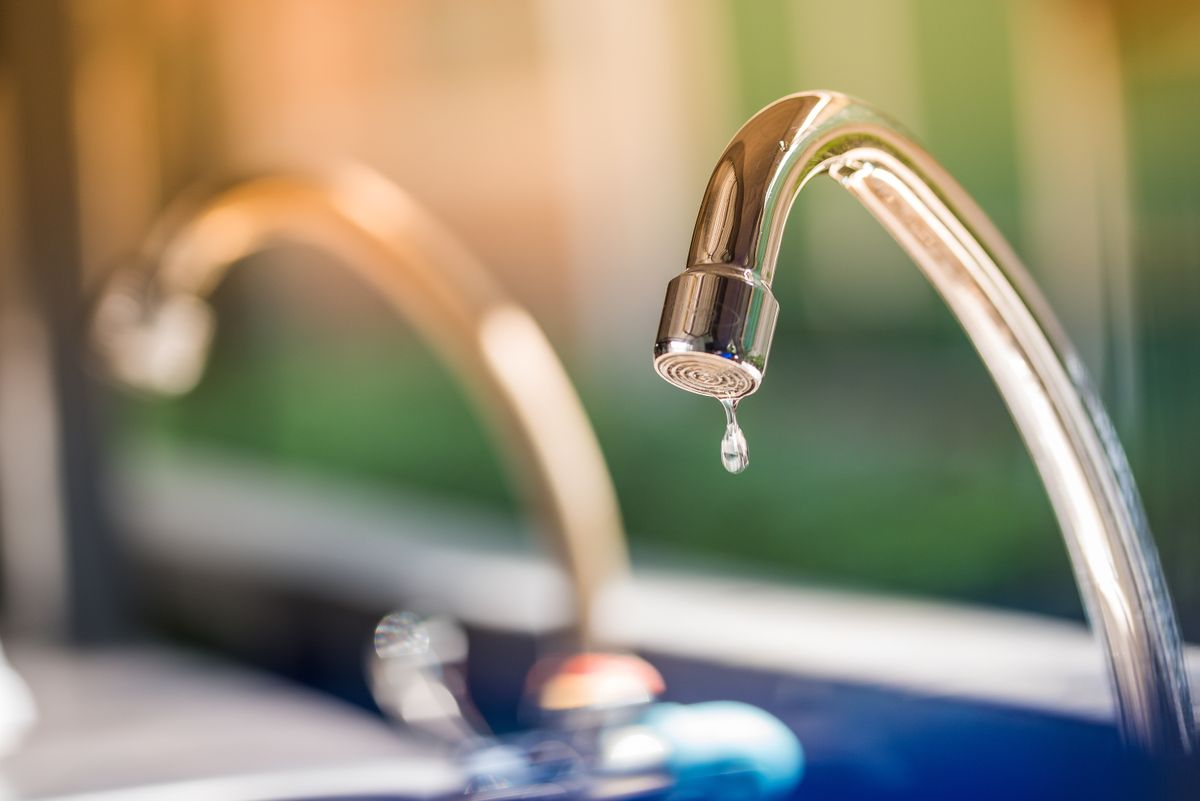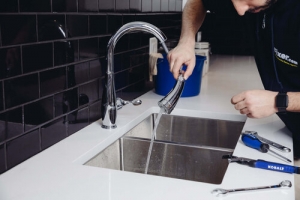When It's Crucial to Mend a Faulty Faucet
When It's Crucial to Mend a Faulty Faucet
Blog Article
Just about every person seems to have their own rationale with regards to Should I Repair or Replace a Leaky Faucet?.

Dripping faucets may feel like a small aggravation, yet their influence exceeds just the nuisance of the noise. From wasting water to incurring unnecessary monetary expenses and health threats, ignoring a leaking tap can lead to various repercussions. In this short article, we'll look into why it's crucial to address this common home problem immediately and successfully.
Waste of Water
Environmental Effect
Dripping taps add substantially to water waste. According to the Environmental Protection Agency (EPA), a single faucet trickling at one drip per secondly can squander greater than 3,000 gallons of water each year. This not only pressures water sources yet also affects ecosystems and wild animals depending on them.
Step-by-Step Guide to Dealing With a Dripping Tap
Tools Called for
Prior to attempting to repair a trickling tap, collect the needed devices, consisting of a flexible wrench, screwdrivers, substitute parts (such as washers or cartridges), and plumber's tape.
Common Tap Issues and Their Solutions
Recognize the kind of faucet and the specific concern triggering the drip. Common problems include damaged washing machines, rusty shutoff seats, or damaged O-rings. Describe producer directions or on-line tutorials for detailed guidance on repair services.
Financial Expenses
Raised Water Costs
Past the ecological impact, leaking faucets can pump up water bills substantially. The accumulated wastefulness with time equates into greater energy expenses, which can have been stayed clear of with timely repairs.
Possible Building Damages
Moreover, prolonged trickling can result in harm to fixtures and surface areas surrounding the tap. Water accumulation can trigger discoloration, corrosion, and even architectural concerns if left unattended, causing extra repair expenses.
Wellness Worries
Mold And Mildew and Mildew Development
The constant visibility of dampness from a trickling faucet produces a suitable environment for mold and mildew and mildew growth. These fungis not only endanger indoor air quality yet likewise pose health and wellness dangers, specifically for people with respiratory problems or allergic reactions.
Waterborne Illness
Stationary water in leaking faucets can end up being a breeding ground for germs and various other virus, boosting the danger of waterborne diseases. Contaminants such as Legionella microorganisms prosper in stagnant water, potentially leading to significant health problems when ingested or breathed in.
DIY vs. Professional Fixing
Benefits and drawbacks of DIY Repair
While some may try to fix a trickling faucet themselves, do it yourself repairs feature their own collection of challenges. Without appropriate expertise and tools, do it yourself attempts can intensify the concern or cause insufficient repair services, lengthening the trouble.
Advantages of Working With a Specialist Plumber
Hiring a professional plumber makes certain that the underlying source of the dripping tap is resolved effectively. Plumbers have the competence and equipment to diagnose and fix tap problems effectively, saving time and decreasing the risk of more damage.
Environmental Obligation
Specific Payment to Preservation
Taking duty for fixing trickling taps straightens with broader initiatives towards water preservation and ecological sustainability. Every individual's actions jointly make a substantial influence on protecting valuable resources.
Lasting Living Practices
By prioritizing prompt repairs and embracing water-saving practices, people add to sustainable living techniques that benefit both existing and future generations.
Preventive Measures
Normal Maintenance Tips
To stop leaking taps, carry out regular maintenance such as cleaning aerators, evaluating for leaks, and changing worn-out components promptly. Furthermore, think about setting up water-saving tools or updating to extra effective components.
Importance of Prompt Repair Works
Dealing with dripping taps as soon as they're discovered avoids additional water wastefulness and potential damage, ultimately conserving both water and cash over time.
Effect On Building Worth
Understanding of Well-Maintained Residential Or Commercial Property
Maintaining a residential or commercial property in good condition, consisting of resolving upkeep problems like dripping taps, boosts its viewed value and worth amongst possible purchasers or renters.
Influence on Resale Worth
Residences with well-maintained plumbing components, including taps, command higher resale worths in the real estate market. Resolving trickling faucets can contribute to a favorable perception during residential property assessments and negotiations.
Verdict
Dealing with a dripping tap surpasses mere ease; it's a vital action towards conserving water, decreasing monetary expenses, and securing wellness and residential property. Whether through do it yourself repairs or professional assistance, taking action to fix trickling taps is a little yet impactful method to promote responsible stewardship of sources and add to a healthier, more lasting future.
How to Fix a Leaky Faucet: Step-by-Step Repair Guide
A leaky faucet may seem like a simple annoyance, but if it's not fixed promptly, that leak could cost hundreds to potentially thousands. From water damage to mold, mildew, and high water bills, even a tiny leak can be catastrophic if left unattended. Damage like this can even affect the overall value of your home, so it's important to take the right approach for leaky faucet repair. You may need the help of a plumber in some cases, but we've got a few tips you can try on how to fix a leaky faucet before calling the pros.
Four Faucet Types
When you're learning how to fix a leaky faucet, the first step is knowing what kind of faucet you're working with! There are four common types.
Cartridge Faucets
Cartridge faucets come in one- or two-handled varieties. In one-handled cartridge faucets, hot and cold water combines in a single cartridge. In the two-handled versions, hot and cold water are controlled separately and mixed in the faucet.
Ball Faucets
Ball faucets have a single lever you push up and down to adjust the pressure and rotate to change the temperature. A slotted metal ball controls the amount of water allowed into the spout.
Compression Washer Faucets
They're the oldest type of faucet, but they're still used in many homes — especially older ones. Compression faucets have two separate handles that, when turned, raise or lower the washer that seals a water valve. This valve stops water from flowing through the faucet when it is turned off.
Disc Faucets
Disc faucets rarely need to be repaired due to their maintenance-free design. The water flow is controlled by two discs — the upper one raises and lowers against a fixed lower disc, creating a watertight seal. If your disc faucet starts leaking, you may need to replace the seals or clean residue buildup from the inlets.
Fixing a Leaky Faucet
Step 1: Turn Off the Water
Whether you're learning how to fix a leaky bathtub faucet or how to fix a leaky kitchen faucet, always turn off the water supply to your working area when you're fixing a leak. The last thing you want is a flood added to your list of things to fix.
Look for the shutoff valves below your sink or around the tub and turn them clockwise to stop the water flow. If your faucet doesn't have shutoff valves, you may need to turn off the water for the whole house. Check to make sure it's off by turning the faucet on. If nothing comes out, you're ready to start the repair.
Step 2: Take Apart the Faucet
How you disassemble your faucet depends on the type of fixture you have. You can use a flathead screwdriver to remove the caps on top of the handle or handles for cartridge and compression faucets. Inside, you should see handle screws. Unscrew these with a screwdriver to remove the handle.
Disc- and ball-style faucets will typically have an inlet screw near the handle, and removing that will reveal the interior of the faucet.
Detach the Valve Stem
For cartridge- and compression-style faucets, you'll see the inner valve stem or cartridge once you remove the faucet handles. If you have a compression faucet, unscrew the brass valve stem. If you have a cartridge faucet, pull out the cartridge. If your cartridge has been in place for a while, it may require some tools or extra force to remove it due to mineral deposits.
Examine and Replace Parts
Once you've removed the parts, check them out to confirm what needs to be replaced. You may see corroded rubber washers, O-rings, stems, or cartridges. On a ball-style faucet, check the seats and springs for damage.
If you need to repair a leaky disc faucet, check the inlet and seals on the lower disc.
Once you determine what parts must be replaced, visit your local hardware store. Bring the damaged parts with you to ensure you can purchase the correct components to replace them.
Clean Valves and Faucet Cavity
If you've removed a stem or cartridge, you may notice mineral buildup in the faucet's threads. Use white vinegar to clean the valve seat by soaking it for a few minutes, then scrub it away with a soft toothbrush and rinse with warm water. You can also clean the interior of the faucet in the same way.
Reassemble the Faucet
Once your faucet is cleaned and the required parts have been replaced, it's time to reassemble it. Put the pieces back together and slowly turn the water supply back on. Doing this slowly is crucial because too much initial water pressure can damage the new hardware you've just installed.
https://homewarranty.firstam.com/blog/how-to-fix-leaky-faucet

I am just very taken with 4 Common Reasons for a Leaky Faucet and I hope you appreciated my piece. So long as you appreciated our page plz make sure you remember to share it. Many thanks for taking the time to read it.
Report this page